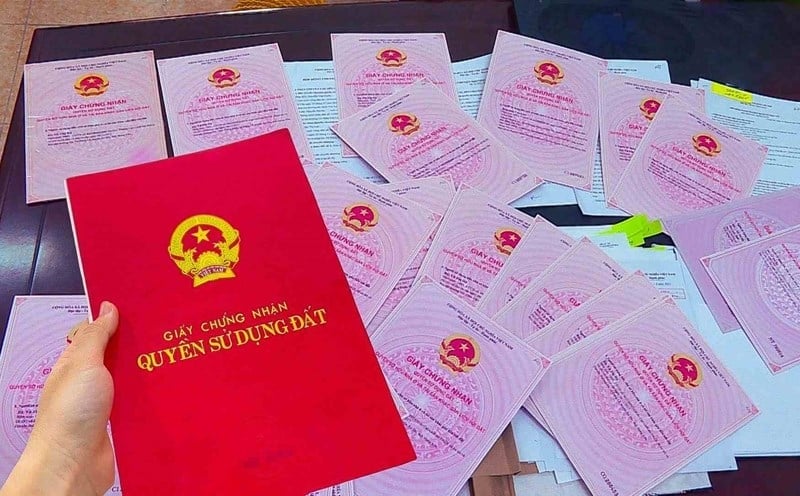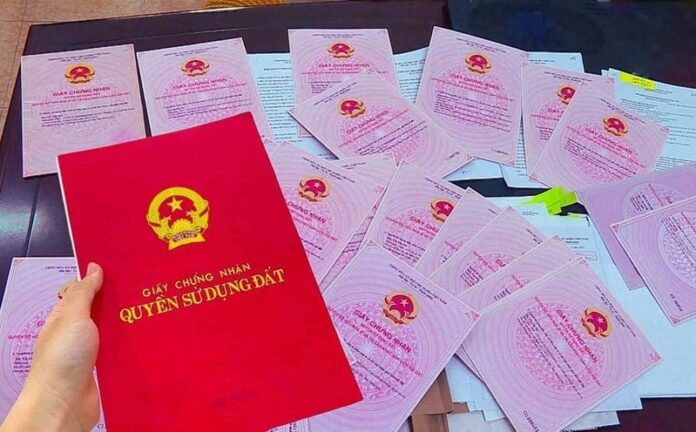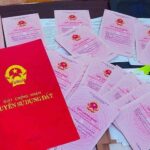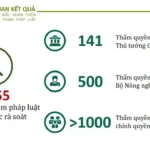The process of obtaining land certificates, including first-time issuance and registration of changes (such as transfers and inheritance), is about to become even more accessible and convenient for citizens. Currently, these procedures are typically handled by district-level authorities, but a proposed change in regulations aims to bring this service closer to the people.
According to Dân Trí newspaper, Resolution 60 of the Central Executive Committee has agreed to a two-tier local government structure, consisting of provincial (province or centrally-run city) and communal (ward/commune/township directly under the province/city) levels. As a result, district-level administrative units will cease operations from July 1, following the enforcement of the amended 2013 Constitution and the 2025 Law on Local Government Organization (amended).

Under the new regulations, communal authorities are empowered to issue land certificates to residents.
In line with this restructuring, the Ministry of Natural Resources and Environment has proposed granting People’s Committees at the communal level (ward/commune/township) the authority to issue first-time land certificates to households and individuals. This proposal is part of the draft decree on the delegation and specification of authority in the land sector.
This move represents a significant step forward in decentralization and empowerment, with the core objective of streamlining procedures and reducing processing times. Instead of traveling to district-level offices, citizens will be able to access these services right in their local communities.
To further enhance convenience, the draft decree also suggests simplifying the confirmation process by communal People’s Committees. Specifically, for certain cases, the communal authorities may not need to confirm additional conditions related to compliance with planning, land dispute status, or stable land use duration when issuing land certificates.
Additionally, the proposal recommends that communal People’s Committees not be required to confirm conditions related to planning compliance, land disputes, or stable land use duration for certain registration procedures. The Ministry of Agriculture and Environment has also proposed clarifying the competencies of the People’s Councils, People’s Committees, and Chairpersons of communal People’s Committees, as well as specialized agencies at the communal level, in land management—transferring some tasks previously handled by district-level authorities.
However, the management of specific types of land, such as ponds, lakes, and reservoirs that span multiple communes, will remain under the jurisdiction of the provincial People’s Committees.
Regarding registration of changes, such as transfers, donations, inheritance, mortgages, and information updates, these procedures will be handled by the provincial land registration offices and their branches. Citizens only need to prepare the necessary documents and choose their preferred method of submission.
Furthermore, according to a report by the Government newspaper, on June 12, the National Assembly officially passed a resolution on the rearrangement of provincial-level administrative units. As a result, Vietnam will be organized into 34 provincial-level administrative units, including 28 provinces and 6 cities.
The key objective, as emphasized by the Politburo and the General Secretary, is to ensure that by July 1, 2025, the new administrative units will be operational under the two-tier local government model.
The Green Revolution: Minister for Agriculture and Environment on Decentralization and Devolution
“Minister of Agriculture and Environment, Mr. Do Duc Duy, emphasized the importance of a streamlined and efficient two-tier governance system. He asserted that decentralization must be accompanied by clear delineation of roles, responsibilities, and tasks, ensuring that unnecessary procedures are eliminated and obsolete business investment conditions are removed, thus bypassing intermediary steps.”
Governing the Two-Tier Local Administration Across the Nation from July 1st, 2025 Onwards
The amended Law on Local Government Organization clearly delineates the powers of the People’s Committee and the authority of its Chairman at the provincial and communal levels.
“All 63 Provinces and Cities Are Our Homeland”
“All 63 provinces are our homeland, and so are 34,” asserted Prime Minister Pham Minh Chinh. As we embark on the reorganization of local administration into two levels from July 1st, the Prime Minister has urged us to cast aside prejudices and act with urgency and determination for the greater good. There is no room for hesitation or the inertia of parochialism.














































